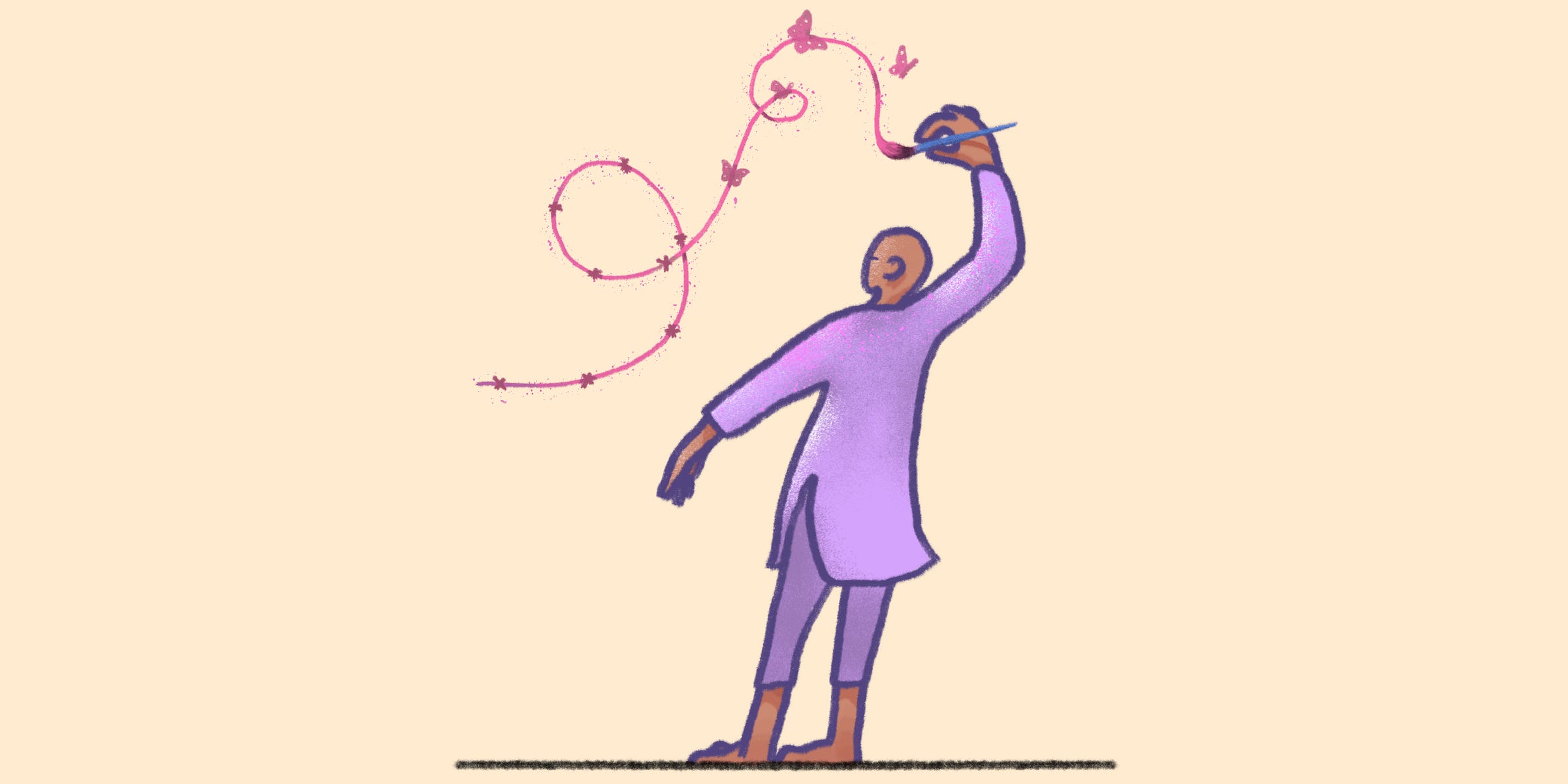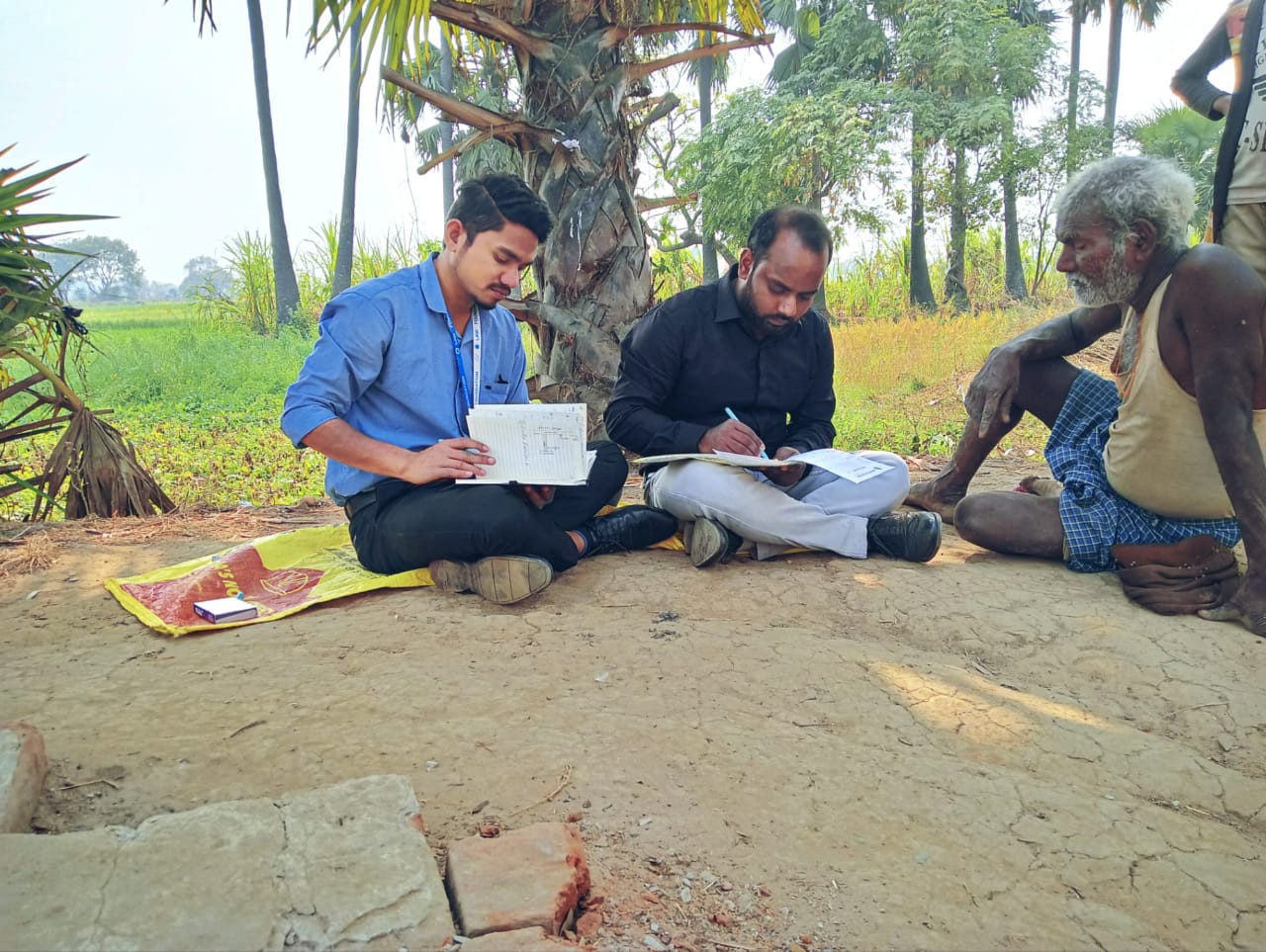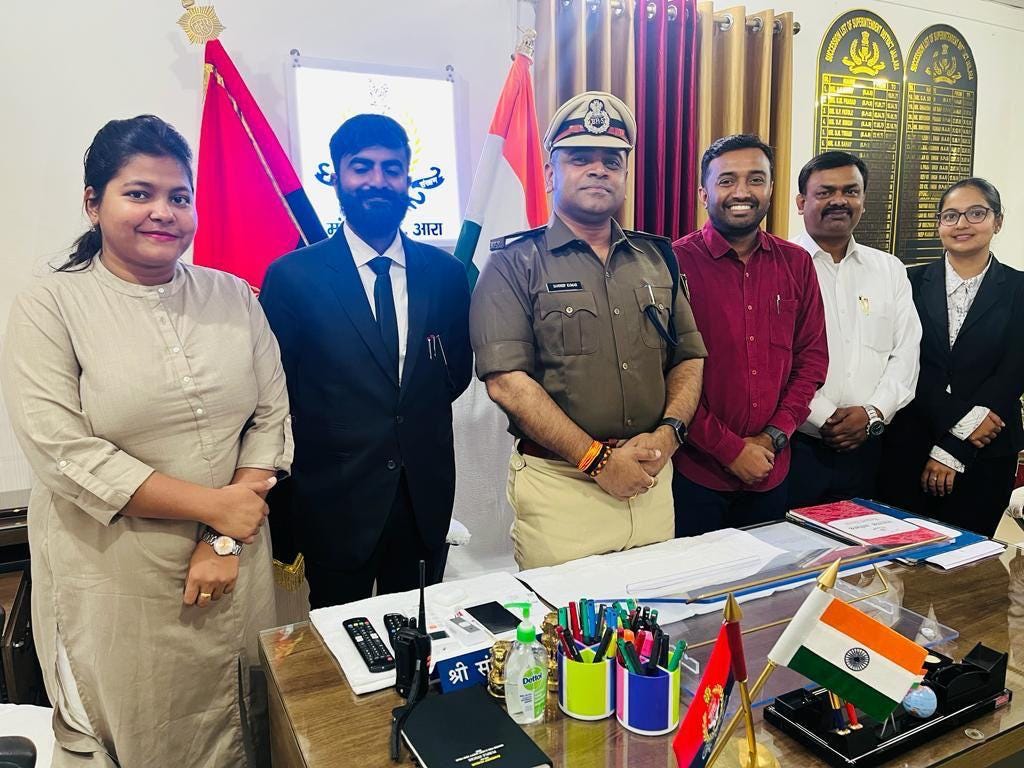In Spotlight: LAW Foundation
Activating convicts who act as Paralegal volunteers for other prisoners

According to the Prison Statistics India 2021 National Crime Records Bureau report, three out of four prisoners in Indian jails are undertrials. Many of them come from marginalised communities like scheduled castes, scheduled tribes, backward castes, as well as nomadic tribes who have no access to legal representation. The empanelled lawyers of district legal services authority or pro-bono lawyers of NGOs, who work hard to ensure that the pleas of the undertrials are heard without delay, have limited access to visits inside the prisons to identify who needs free legal aid.
So who has unlimited access to undertrial wards inside the prisons?
“So in the year 2016 and 2017, as Praveen Ji was telling that at that moment of time, when we were working inside the prisons in an individual capacity, we identified that it was very problematic to work for such a large number of under trials who were detained inside the Beur Central Prison where there were six thousand under trials and convicts. So, we thought - why not to form a group who are convicted as well as under trials, who are ready to volunteer themselves, so that there is someone apart from us inside the prison who can give us information about the legal documents process and about who are the marginalised communities that really want to get free socio-legal aid services.”
It is the convicted prisoners who are serving their punishment in prisons. They are neither bound by visiting hours nor restricted from visiting other wards or speaking to other inmates. They can move freely between prison wards and thus have better accessibility to identify those who need socio-legal assistance. These convicted prisoners can then work with them and orchestrate their legal documents.
This is the insight fueling Praveen Kumar and Shubhendu Shekhar’s work at LAW Foundation. They set it up as a socio-legal initiative that identifies and trains convicts to be jail paralegal volunteers (JPLVs) who can help their fellow inmates with their legal cases.
Earlier, LAW Foundation was working with the undertrial inmates as volunteers, but it was not sustainable because the undertrials were either released on bail or were acquitted. On the other hand, working with convicted prisoners helped establish a second line of leadership. This clean, lean model to leverage the untapped talent of convicts in prisons for legal aid is a conflation of effective systemic planning and relational trust.
Empowering the JPLVs
The JPLVs are trained in the basics of the legal process and documentation, as well as in identifying inmates who need socio-legal assistance. They are trained in filling vakalatnama, surety bail bond forms, preparing affidavits and writing Personal Recognizance (PR) bail bond applications. Many times, the PR bail bond applications are often prepared by the JPLVs themselves and given to the undertrial inmates going to their court hearings. They often bridge the communication gap between the district legal services authority and the concerned inmate.
Additionally, the JPLVs have been granted full access to the internal prison website portal as the jail authorities, where they upload and download relevant documents required in the particular case. The prison authorities have given the JPLVs access to the legal aid clinic telephone so that they can communicate with the district legal service authorities and the LAW Foundation team members regarding the updates of different cases.
In turn, the work done by these convicted prisoners (JPLVs) offers them a sense of structure and routine in their life. JPLVs have been in prison for so long that a feeling of camaraderie develops between the inmates. Since they know getting out of prison for themselves before serving a sentence is impossible, there is a sense of satisfaction and happiness in helping their fellow inmates. They believe in the idea of prison being their home while prisoners are their family members.

Some of this unprecedented access comes from the time that Shubhendu and Praveen spent working in the prisons and building a rapport with the jail and legal services authorities along with Hon’ble High Court and District Court judges who all determine the well-being of prisoners in jail.
However, there is always a conscious effort towards making these relationships long-lasting. Whenever new officials come to these posts, the team makes a joint effort to meet them and share the idea of the work to keep it running smoothly. Additionally, they always seek a memorandum of understanding between the prisons and the organisation.
The LAW Foundation team now visits the prisons only twice a week while the JPLVs keep all the documents ready for the case, and together they write down the facts and narratives. The team returns to their office to discuss the issue, reads the FIR and charge sheet if required, and then explores options for legal recourse. A petition is filed at the concerned court through a panel of pro-bono advocates.
Today seven long-term convicts work as JPLVs across four district jails in Patna, Bihar. They have handled five hundred legal aid cases, including preparing seventy applications under the Code of Criminal Procedure for personal recognisance bonds.
Praveen believes that the idea of jail paralegal volunteers is sustainable in itself. “…because we have seen that if one volunteer works inside the prison, he can motivate the other convicted prisoner who is also willing to work voluntarily in the system. So it creates a kind of team of teams inside the prisons.”
Shubhendu believes that the idea of a jail paralegal volunteer is a catalyst for innovatively transforming the law and justice system.
Note:
*Shubhendu Shekhar, co-founder of LAW Foundation, in conversation with Maria Clara Pinheiro during Agami Prize 2022.
Edited by Jahnavi Jayanth, Keerthana Medarametla and Supriya Sankaran.




